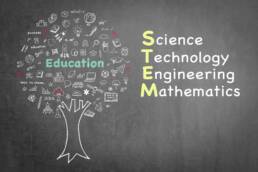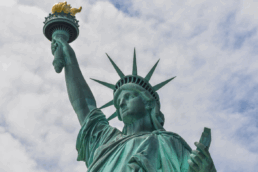Congressmen Erik Paulsen (MN) and Mike Quigley (IL) have reintroduced a bill that would exempt certain foreign-born STEM graduates from the numerical caps on employment-based green cards and H-1B visas. The Stopping Trained in America Ph.D.’s from Leaving the Economy (STAPLE) Act would exclude STEM graduates who have earned an American Ph.D. from these statutory limitations.
Since April 1, the United States has received 233,000 applications for H-1B visas. With only 65,000 being awarded each year, receiving one of these high-skilled visas is quite challenging. Applicants are subject to a lottery where two out of three individuals will not be chosen. However, a petitioner may seek a cap exemption for beneficiaries who have “earned a master’s or higher degree from a United States institution of higher education.” This is known as the Master’s Cap exemption, and it is capped at 20,000 per year. The new bipartisan legislation seeks to modify these existing regulations by providing Ph.D. STEM graduates a complete exemption for any numerical limits imposed by the Immigration and Nationality Act (INA).
The H-1B visa program has been the subject of political discussion for years. It has faced criticism in the past, and President Trump has spoken publicly multiple times about his intent on reform. He signed an executive order that vowed to take action against fraud and abuse of the system. It also vowed to enforce “Hire American” rules that are designed to protect jobs and wages of workers in the U.S. Many people, including the President, fear that the current H-1B system threatens to take jobs away from Americans, while others argue that it has no such effect. The architects of this bill said, however, that “If the U.S. was serious about fostering innovation, spurring economic activity and staying competitive in the global marketplace, it must encourage the brightest minds in the world to study, work and stay in its communities.”
Numerous studies have found that H-1B visas correspond with an increase in jobs for U.S. citizens. In 2011, the American Enterprise Institute conducted a study which found that “an additional 100 foreign-born workers in STEM fields with advanced degrees from U.S. universities is associated with an additional 262 jobs among U.S. natives.”
Ultimately, the bill aims to foster economic growth. It seeks to continue attracting the brightest minds from around the world, and to ensure that U.S.-educated students stick around after graduation and contribute to the American economy. “With thousands of high-skilled jobs going unfilled, the STAPLE Act makes sure American companies are getting the talent they need,” said Congressman Paulsen.
Berardi Immigration Law will continue to closely monitor this bill. Be sure to frequently check our blog for more updates!
Ready to have Berardi on your side?
Whether you’re a business looking to hire or a professional hoping to relocate, immigration law can be complicated. But you don’t have to do it alone. Put our experience to work for you.



